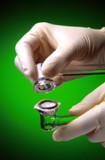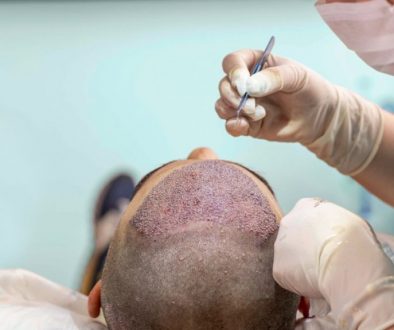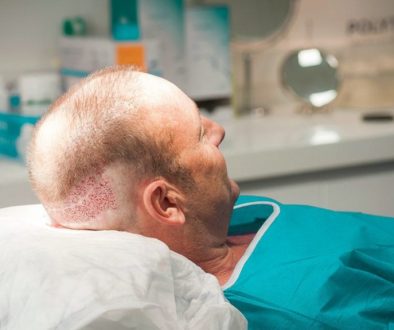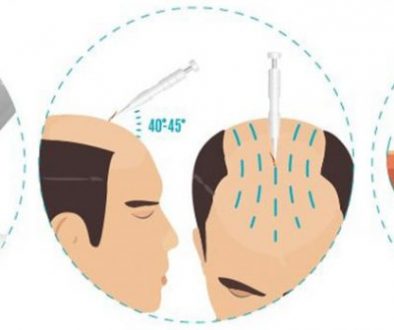Will a Dihydrotestosterone (DHT) Blood Panel Accurately Predict Hair Loss?
This question comes from a member of our [tag]Hair Restoration[/tag] Discussion Forums and Social Community:
I’ve recently become concerned that my hair is thinning, and I’m wondering if a blood panel assessment which tested the level of [tag]dihydrotestosterone[/tag] ([tag]DHT[/tag]) in my blood would accurately predict my future hair loss?
 Dihydrotestosterone, or DHT, is the hormone directly responsible for [tag]genetic hair loss[/tag]. Through a fairly simple conversion, normal, circulating testosterone can be converted to dihydrotestosterone in our bodies. When this happens, dihydrotestosterone binds to healthy [tag]hair follicles[/tag], and, unfortunately, causes these follicles to wither and eventually fall out. Knowing this, it’s easy to understand why a blood panel showing the levels of DHT in the blood could be useful in assessing potential [tag]hair loss[/tag].
Dihydrotestosterone, or DHT, is the hormone directly responsible for [tag]genetic hair loss[/tag]. Through a fairly simple conversion, normal, circulating testosterone can be converted to dihydrotestosterone in our bodies. When this happens, dihydrotestosterone binds to healthy [tag]hair follicles[/tag], and, unfortunately, causes these follicles to wither and eventually fall out. Knowing this, it’s easy to understand why a blood panel showing the levels of DHT in the blood could be useful in assessing potential [tag]hair loss[/tag].
In theory, this idea makes sense and could definitely give you some idea of the probability of developing some level of [tag]balding[/tag]. However, because genetic hair loss is such an unpredictable and progressive issue, it’s essentially impossible to state that your pattern, level, or probability of baldness can be predicted by a simple blood panel. The good news is that proven, preventive therapies (such as minoxidil/Rogaine and finasteride/Propecia) can help stabilize and reverse hair loss, especially when detected at an early stage.
_______________
Blake Bloxham – formerly “Future_HT_Doc”
Editorial Assistant and Forum Co-Moderator for the Hair Transplant Network, the Hair Loss Learning Center, the Hair Loss Q&A Blog, and the Hair Restoration Forum
Follow our community on Twitter
Watch hair transplant videos on YouTube
Get Proven Hair Loss Treatments at the Best Prices by visiting our new Online Hair Loss Product Store



